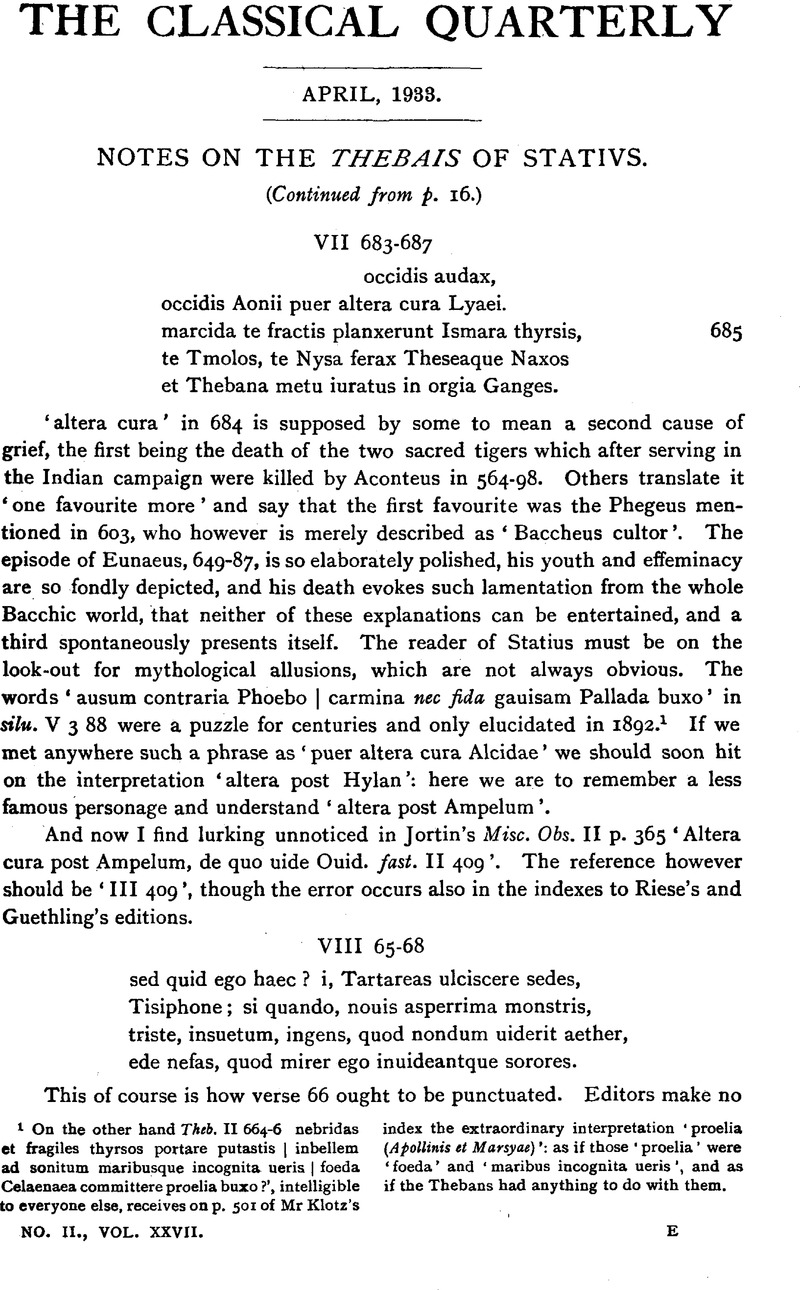Article contents
Notes on the Thebais of Stativs
Published online by Cambridge University Press: 11 February 2009
Abstract

- Type
- Other
- Information
- Copyright
- Copyright © The Classical Association 1933
References
page 65 note 1 On the other hand Thib. II 664–6 nebridaset fragiles thyrsos portare putastis | inbellem ad sonitum maribusque incognita ueris | foeda Celaenaea committere proelia buxo?’, intelligible to everyone else, receives on p. 501 of Mr Klotz's index the extraordinary interpretation ‘proelia (Apollinis et Marsyae)’: as if those ‘proelia’ were ‘foeda’ and ‘maribus incognita ueris’, and as if the Thebans had anything to do with them.
page 66 note 1 It stands in Bernartius' margin as a variant or emendation.
page 66 note 2 If I compare Hor. serm. II 8 78 ‘stridere… susurros’ it is only because C. F. W. Mueller Synt.d.nom.u.akk. p. II makes the same blunder of taking the accusative for object.
page 67 note 1 The ergo hoc at the end of XI 429, by Mr Klotz from PN, -would be ‘contra metri cam Stati’ if it were a conjecture.
page 69 note 1 They ought also to have been disturbed by the co-ordination faciles carmenque secuti.
page 72 note 1 Mr Klotz will no doubt explain the Phocᾰis (from ϕώκαɩɑ) of Lucan and Silius in the same way, and leave their Phocᾰicus to shift for itself. He would be well pleased if he could similarly explain theEubŏis (from Εὒβοɩɒ) of Ach. I 414 and silu. I 2 263, similarly disregarding the Eubŏicae of silu. I 2 177; but alas, though Sophocles has εὐβοιƚς, in Aeschylus and Euripides the word is εὐβοƚδα, or Eὐβοîδα. For the Edŏnis of Lucan and Statius the explanation would have more plausibility, were not the false quantity assignable to the false analogy of Bistŏnis or Sithŏnis.
page 72 note 2 Whence Georges and Lewis and Short got their ‘Panathenaicus’ I do not know, but it was not from Auson. 191 14 (Peip. p. 49) ‘in Panathenᾰicis tu numerandus eris’.
page 72 note 3 Though this is correctly formed αιναsigma; from and used by Ovid, ex Pont. Ill 484Google Scholar.
- 1
- Cited by


